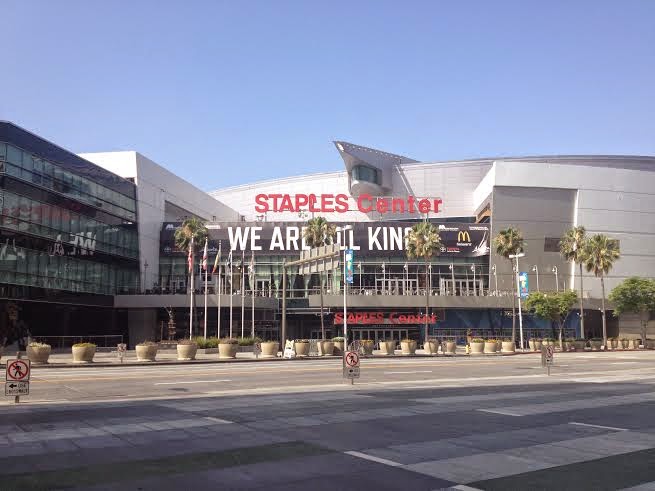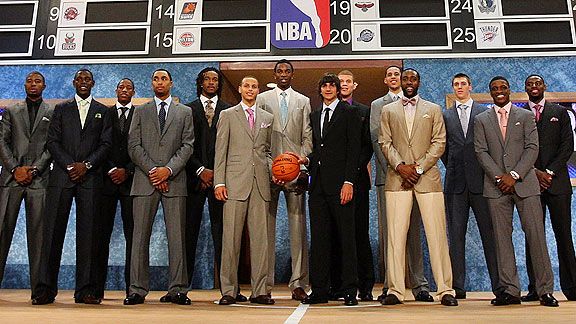On Friday, November 8th, The Cornell Sports Business Society was pleased to welcome alumna Becky Sendrow ’02 of Creative Artist’s Agency (CAA). Sendrow, a former Cornell tennis player and government major in the College of Arts and Sciences, currently works as a Sports Broadcasting Agent at CAA. After graduating from Cornell in 2002, she attended Yeshiva University’s Benjamin N. Cardozo School of Law, where she earned her law degree. During her time in law school, Sendrow, a native of Philadelphia, focused primarily on intellectual property and alternative dispute resolution. Her exuberance and charisma were the foundation for a great event.
Sendrow began her career upon graduating law school at William Morris Endeavor, one of the largest and most prestigious talent agencies in the world. In 2005, she had begun working full-time in the mailroom—where almost all aspiring agents start out—but before long her talent and work ethic moved her up the corporate ladder. From there she moved over to CAA, where the Sports Agency Department was just being started. The Sports Broadcasting group at CAA may be young, but it has established itself as a leading team in the business. Clients of the group include the likes of Carl Ripken Jr., Warren Sapp, Jalen Rose, Linda Cohn, and Barry Melrose. CAA also represents coaches, such as Mike Krzyzewski, Erik Spoelstra, and Rex Ryan, and a plethora of athletes including Sidney Crosby, Dwayne Wade, Chris Paul, Cristiano Ronaldo, and Adrian Peterson.
Client Case Study: Michelle Beadle
Michelle Beadle is a sports reporter and television show host who is currently represented by Sendrow. With Beadle’s contract as host of hit segment Sports Nation set to expire, Sendrow was there to help her plan out her future, and take her career in a new direction. Beadle’s show was featured on ESPN2, but she expressed that she was looking to move away from the ESPN brand. By utilizing contacts in the industry, Sendrow was able to work with NBC Sports to create a position for Beadle. While NBC Sports was new at the time, the two sides believed that there were great opportunities for Beadle to advance her career. At NBC Sports, Beadle now works as both a reporter and host. She reported the 2012 Olympic Games in London, and is currently a co-host on Access Hollywood. Beadle also had her own show called The Crossover with Michelle Beadle, although it is no longer running. Sendrow advises Beadle in other facets of the broadcaster’s life as well. She helps arrange speaking engagements, finds endorsement opportunities, and books charity functions. Sendrow was integral in helping Beadle found her own charity through the American Society for the Prevention of Cruelty to—she is a dog lover—and helped secure her a sponsorship with Bridgestone Tires, which has led to her appearance in commercials, such as a recent ad with US Olympian soccer player Alex Morgan.
Audience Question: “What is she [Beadle] getting at NBC that she could not get at ESPN?”
Answer: Before, at ESPN she was on a cable network doing one show—there was no room for her to grow or develop her talent. Not only that, but she was also stuck on ESPN2, which has even less room to grow than ESPN. It was also her personal interests that could not be met; she wanted to do more entertainment and NBC gave her that opportunity.
Client Case Study: Nomar Garciaparra
Former MLB star Nomar Garciaparra, a six-time all-star shortstop over the course of a 13-year career, is best known for his tenure on the Boston Red Sox. Sendrow first came in contact with Garciaparra via cold call, an unlikely scenario. At the time, he already had an agent, but after almost a year of hard work, Sendrow was able to convince him that CAA could provide him with the best representation team out there. To convince Garciaparra to make the switch to CAA, Sendrow set up meetings with every division in the company, allowing him to to learn about everything from memorabilia to television opportunities.
Once he signed on, Sendrow immediately began creating opportunities, helping him secure work commentating baseball games. She helped him start his own charity as well, which focuses on solar energy. Sendrow and her team are currently working on getting Garciaparra involved in a television documentary about solar panels. He is also currently a baseball analyst for ESPN. Sendrow explained that landing a former marquee player like Garciaparra was a huge moment in her career, and was a tribute to her hard work and determination.
Sendrow went on to explain the importance of getting close to players, and teaching them how they can extend their career via different avenues upon retirement, such as broadcasting. Creating relationships with players nearing retirement increases the likelihood of their signing with your agency. CAA’s Athlete Representation department does just that. By providing current athletes with assistance regarding endorsement deals, guest appearances on television shows, and so on, they build on that athlete’s brand. Once these players retire, CAA can help them transition into life after sports, which can entail broadcasting, coaching, or writing books, among countless other opportunities.
Audience Question: How do you use the entire company [CAA] to make clients happy?
Answer: They use all facets of the company to bring their clients in and prove to them that they have access to each and every part of the business, should their interests lie in those areas. CAA has a wide variety of departments spanning from music to theatre to video games, and more. Clients realize that whatever interests they may have, they are likely to fall under one of these categories. CAA has been involved in the creation of all of Netflix’s original series, for example, which could give clients the opportunity to make cameos. A pillar of CAA is that you are represented by the entire Agency, not just one single agent. Sendrow says that she always has an entire team around her, and clients feel a sense of security due to that fact.
Client Case Study: Ephraim Salaam
Ephraim Salaam is a retired 10-year veteran of the National Football League. Sendrow described how she helped Salaam, one of her favorite clients, develop his career after football. She noted that soon after retirement, Salaam was having trouble finding career opportunities, but she was not willing to give up on him because of his extraordinary personality and his backstory—Salaam had helped recruit a future NFL teammate from a grocery store during college, and had played football and basketball at San Diego State University. Eventually he got his big break with Fox Sports Live where he is now an analyst.
In an interview with Dallas Mavericks owner and self-made billionaire Mark Cuban on Fox Sports Live, the two spoke about Salaam potentially trying out for the Mavericks D-League team. After following up, Salaam did get the tryout, and he made the team. Salaam also participated in the hit television show The Amazing Race, which was a dream of his. Sendrow used his story as an example of the variety of clients that CAA represents. The agency takes all different types of people, coming from all different backgrounds, and helps them succeed—whether they have already grown to become household names, and have established careers, or are relatively low-profile retired athletes who have yet to make their mark on a new industry.
Sendrow gave a few examples of what her day-to-day life looks like, and how the company functions. Whether it is working on a deal with her client and a major network, helping current athletes land endorsement deals, or advising clients in their everyday lives, there is never a dull moment in sports representation.
Question and Answer Portion
Audience Question: How cutthroat do you have to be in this environment?
Answer: Everyone has his or her own style in the business, but it is important to have a backbone. Sendrow explained how she is naturally a very amicable person, but sometimes you have to be stern to get things done.
Audience Question: How do you react to a client like Shaun White taking a year off to go on tour with his band?
Answer: Shaun White is one of the biggest athletes in the world. He can afford to take time off during his offseason, or when he is injured, because he is the best at what he does. At the end of the day it is his decision, and even if she advised against such a move, he is very bright guy and knows what he wants.
Audience Question: What do you think the landscape of the sports agency business will look like in five years?
Answer: There are a lot of small agencies that are continuing to operate as “up-and-comers.” Larger agencies acquire smaller ones from year to year. Some others experience serious growth or dissolve altogether. Sendrow predicts that in the future, super agencies such as WME and CAA will become less and less common.
Audience Question: At what point in your career must you be in for CAA to represent you?
Answer: CAA takes on all different types of clients, sometimes building careers from the bottom up, and other times managing already well-established individuals.
Advice to those in Attendance:
Sendrow concluded the evening with some great advice to members of the club. She suggested always looking to utilize connections. She pointed out that while someone may not have something to offer you at the moment, that doesn’t mean they won’t have something in the future. She explained that coming out of school, no one expects you to know everything. However, take small experiences that you may have had and “make them seem big”. Leverage those experiences, as that can go a long way.
The agency world is hard to break into, so try to make yourself stand out from other applicants in any way that you can. As an agent, your main job is to find other people jobs, so you have to be able to find yourself one first. Once you get your start as an agent, one of the best ways to show clients that you are the right representative for them is to show them how you can provide value beyond that which they are currently receiving, and what you would have done better in their past.
As always, the Cornell Sports Business Society would like to thank alumna Becky Sendrow again for taking the time to travel up to Ithaca and speak with us. Her enthusiasm to share her knowledge and experience with the group was invaluable, and her lightheartedness created a great environment for discussion. We hope we can continue to benefit from the guidance of Ms. Sendrow in the future.
Dan Cappetta and Connor Riser contributed to this post.Labels: Alumni, Becky Sendrow, CAA, Club Activities, CRiser, DCappetta, Event Recap, Events, MFogle






















